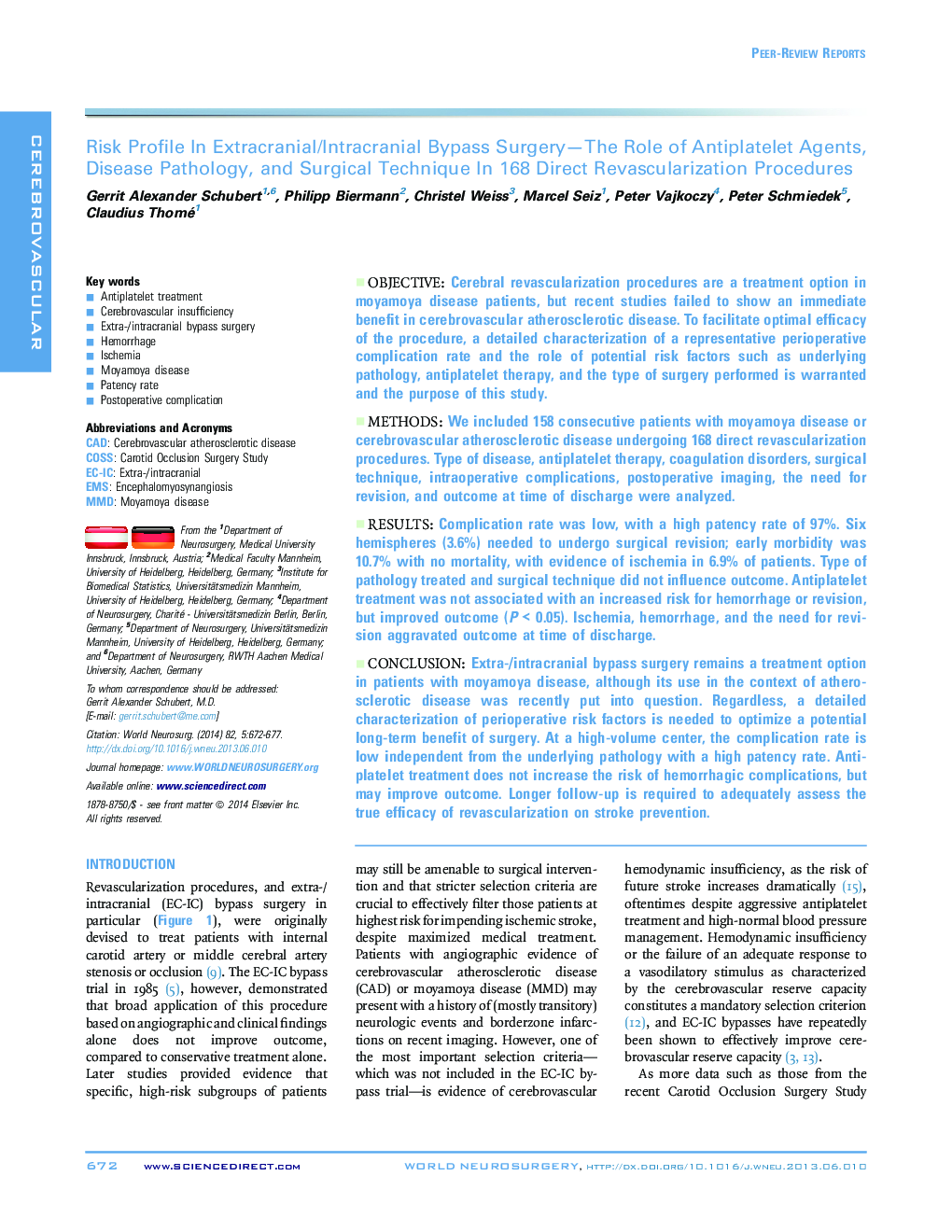| Article ID | Journal | Published Year | Pages | File Type |
|---|---|---|---|---|
| 3095312 | World Neurosurgery | 2014 | 6 Pages |
ObjectiveCerebral revascularization procedures are a treatment option in moyamoya disease patients, but recent studies failed to show an immediate benefit in cerebrovascular atherosclerotic disease. To facilitate optimal efficacy of the procedure, a detailed characterization of a representative perioperative complication rate and the role of potential risk factors such as underlying pathology, antiplatelet therapy, and the type of surgery performed is warranted and the purpose of this study.MethodsWe included 158 consecutive patients with moyamoya disease or cerebrovascular atherosclerotic disease undergoing 168 direct revascularization procedures. Type of disease, antiplatelet therapy, coagulation disorders, surgical technique, intraoperative complications, postoperative imaging, the need for revision, and outcome at time of discharge were analyzed.ResultsComplication rate was low, with a high patency rate of 97%. Six hemispheres (3.6%) needed to undergo surgical revision; early morbidity was 10.7% with no mortality, with evidence of ischemia in 6.9% of patients. Type of pathology treated and surgical technique did not influence outcome. Antiplatelet treatment was not associated with an increased risk for hemorrhage or revision, but improved outcome (P < 0.05). Ischemia, hemorrhage, and the need for revision aggravated outcome at time of discharge.ConclusionExtra-/intracranial bypass surgery remains a treatment option in patients with moyamoya disease, although its use in the context of atherosclerotic disease was recently put into question. Regardless, a detailed characterization of perioperative risk factors is needed to optimize a potential long-term benefit of surgery. At a high-volume center, the complication rate is low independent from the underlying pathology with a high patency rate. Antiplatelet treatment does not increase the risk of hemorrhagic complications, but may improve outcome. Longer follow-up is required to adequately assess the true efficacy of revascularization on stroke prevention.
